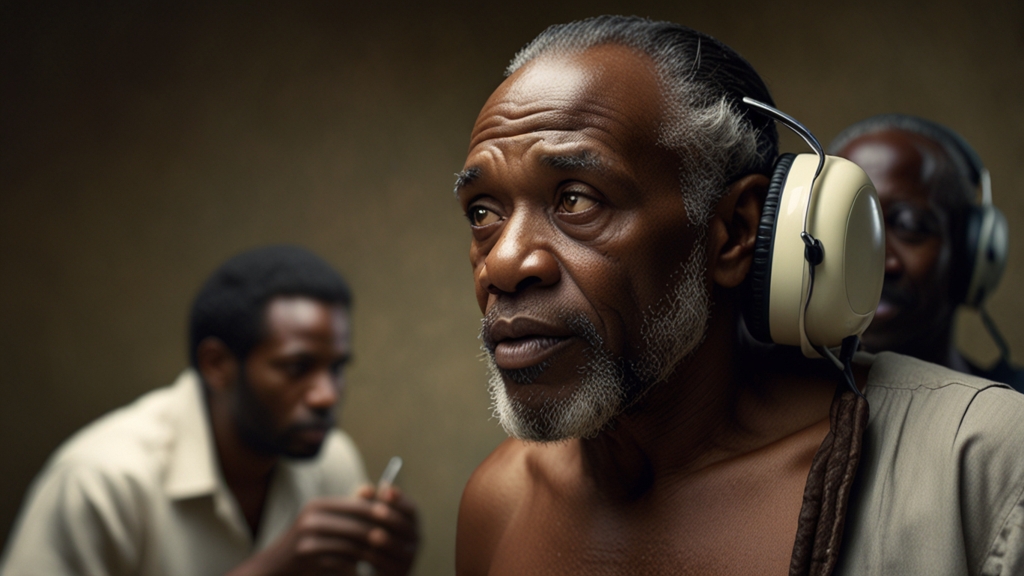The Scandalous Lives of Famous Prophets You Never Knew About
When we think of prophets, the first images that come to mind are often of moralistic, pious individuals who were guided by divine intervention. However, history reveals that even these revered figures had their fair share of controversies and morally ambiguous actions. While these stories may not be well-known, they serve to humanize these larger-than-life characters and remind us that even the most venerated figures have their flaws.
1. King David - The Adulterous Prophet
King David is one of the most celebrated figures in biblical history, known for his psalms and the establishment of Jerusalem as a sacred city. However, his personal life was rife with scandal, most prominently his affair with Bathsheba. The story goes that David, from the rooftop of his palace, saw Bathsheba bathing. Captivated by her beauty, he summoned her, and they committed adultery. To cover up the resultant pregnancy, David orchestrated the death of her husband, Uriah, a loyal soldier.
"David sent someone to find out about her. The man said, 'She is Bathsheba, the wife of Uriah the Hittite.' Then David sent messengers to get her. She came to him, and he slept with her." - 2 Samuel 11:3-4
This dark chapter in David's life led to severe repercussions, both for his family and his reign. Despite his profound contributions to the religious and political landscape, his actions remind us that even prophets can succumb to human weaknesses.
2. Jonah - The Reluctant Prophet
Jonah is one of the most intriguing prophets due to his initial reluctance to follow divine instructions. God commanded Jonah to go to the city of Nineveh and preach against its wickedness. Instead, Jonah attempted to flee from God's call, boarding a ship bound for Tarshish. His actions led to a violent storm that endangered the lives of the ship's crew, prompting them to throw Jonah overboard to calm the seas. A great fish swallowed Jonah, and he spent three days and nights in its belly before being spat out on dry land.
"But Jonah ran away from the Lord and headed for Tarshish. He went down to Joppa, where he found a ship bound for that port." - Jonah 1:3
Jonah’s story is not just one of reluctance but also of redemption. His initial disobedience highlights the complexities of prophetic missions and the human emotions involved, including fear, rebellion, and eventually, acceptance.
3. Muhammad - The Merchant Turned Prophet
Muhammad, the founder of Islam, is often portrayed as an epitome of virtue and unwavering faith. Yet, parts of his life, especially during the transition from a successful merchant to a prophet, were marked by controversy. One of the most debated aspects is his polygamy. Muhammad married multiple women, which, while acceptable in the socio-cultural context of 7th century Arabia, has been scrutinized by later generations.
His marriage to Aisha, who was very young at the time, has been particularly contentious. Critics argue that such practices question the moral compass of the prophet, though defenders maintain that these marriages were customary and had social, political, and humanitarian motivations.
4. Moses - The Murderer and Leader
Moses is another towering prophetic figure fraught with a controversial backstory. Before leading the Israelites out of Egypt and receiving the Ten Commandments, Moses committed murder. Seeing an Egyptian beating a Hebrew slave, Moses intervened and killed the Egyptian, hiding the body in the sand. This act forced him to flee to Midian, where he began a new life until his divine calling.
"Looking this way and that and seeing no one, he killed the Egyptian and hid him in the sand." - Exodus 2:12
Moses' journey from fugitive to leader emphasizes transformation and redemption, crucial themes in prophetic narratives. His story illustrates that personal failings do not disqualify one from achieving greatness or being chosen for a higher purpose.
These accounts remind us that prophets, despite their divine missions, were profoundly human, grappling with sin, temptation, and moral dilemmas. Their lives, filled with controversy and scandal, make their stories more relatable and underscored by the universal struggle for virtue and redemption. By understanding their flaws, we gain a deeper appreciation of their teachings and the complexities of their legacies.








